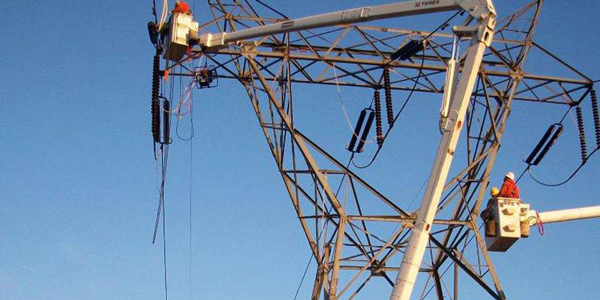By Rich Heidorn Jr.
FERC on Friday rejected PJM’s proposal to exempt incumbent transmission owners from signing designated entity agreements (DEAs), saying it gave them an undue advantage over non-incumbents (ER18-1647).
In May, PJM proposed two changes to the competitive proposal window process mandated by Order 1000.
The commission approved PJM’s request to allow transmission developers 60 days to accept a DEA after receiving it as the winner of a project. The agreement includes a development schedule and a requirement to provide a letter of credit equal to 3% of the estimated project cost.
But the commission rejected the RTO’s proposal to exempt incumbent TOs from the requirement to execute a DEA for Regional Expansion Transmission Plan projects that the Operating Agreement requires PJM to designate to an incumbent. Such projects include TO upgrades; projects that would alter the TO’s use of its right of way; and those located solely within a TO’s zone that are not allocated outside.
PJM argued that the terms of the Consolidated Transmission Owners Agreement (CTOA) governing incumbents are comparable to the DEA. It said the security requirement — to protect ratepayers from additional costs if the original developer abandons a project and it must be reassigned — was unnecessary for incumbents because they cannot abandon projects and that requiring it would only increase costs.
The commission said PJM’s proposal would provide an advantage to incumbent TOs in the RTO’s evaluation of transmission proposals. FERC noted that it had rejected similar exemptions in Order 1000 filings by FERC Accepts Order 1000 Compliance Filing.)
“The less stringent requirements in the Consolidated Transmission Owners Agreement also could spare an incumbent transmission owner from a breach (and the associated remedies) that would otherwise be triggered if it executed the designated entity agreement. Although PJM argues that the proposal to exempt incumbent transmission owners from the requirement to execute a designated entity agreement in certain cases will further administrative efficiency, any such benefits do not overcome undue discrimination concerns,” the commission said.
“Under PJM’s proposal, an incumbent transmission owner proposing a transmission owner designated project in PJM’s competitive proposal window process could reflect the cost savings associated with not having a security requirement in its proposal,” FERC added.
The commission also said the CTOA’s milestone requirements are less stringent than that in the DEA, which includes “several interim milestone obligations and consequently, more potential events for breach.”
FERC said the DEA could prevent a transmission developer from assigning its rights to an affiliated limited liability company or C-corporation as financing vehicles, or from meeting legal requirements for state public utility status. “Such prohibition could inhibit the developer’s ability to seek siting approval from that state, particularly if the state requires that the developer be incorporated as a public utility under state law,” FERC said.
The commission approved PJM’s proposal to change the time period for a transmission developer to accept its designation.
Rather than having 60 days from receiving notification of its designation to accept, PJM proposed that the developer have 60 days after receiving the DEA.
“We agree that this proposal will provide PJM with more time to develop and issue the designated entity agreement, as well as for the transmission developer to respond to the initial designation with a development schedule with milestones and relevant project information,” FERC said.





